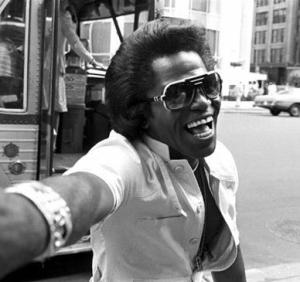Eric Burdon, the white singer with the most privileged black voice ever born established during the brief time together (1969-1971) with WAR a true halo of musical fluency and literally opened a gate for the necessary exit of so many encountered rhythms that were in baling point at that moment. On one hand, Santana and his fusion elements, the Soul as the most genuine expression from the sixties, was in decay.
This fortunate blending of jazz elements and the Latin swing (alas Poncho Sanchez- Dizzy Gillespie and Manteca) was much more than a simple ensemble with successful results as Chicano for instance.
Burdon knew wisely to arrange famous versions of the hard rock and could harmonize them through his potent voice and a memorable team of notable musicians. Lonnie Jordan recalled with admiration these revealing opinions: 2 Eric taught me a lot – we were able to improvise with him in ways that I had not thought were possible before. Sometimes we’d play for 45 minutes nonstop on stage, improvising all the way through. He really amazed me.”
Tobacco road and Paint in black were two anthological themes that literally received a new treatment and shone with own light. On the other hand you should take into ccou8nt the fantastic blues “Mother earth” and “Home dream”, two track many times forgotten and even neglected at the moment to consider the most representative pieces of this famed ensemble.
Nevertheless “Spill the wine” would become the main presentation card and practically its hymn through the world.
In this sense this ensemble marked a landmark and not simply a transition vehicle as you could suppose, around the richness and future source of inspiration to many future ensembles that found and still on determining clues to create new possibilities of expression.








